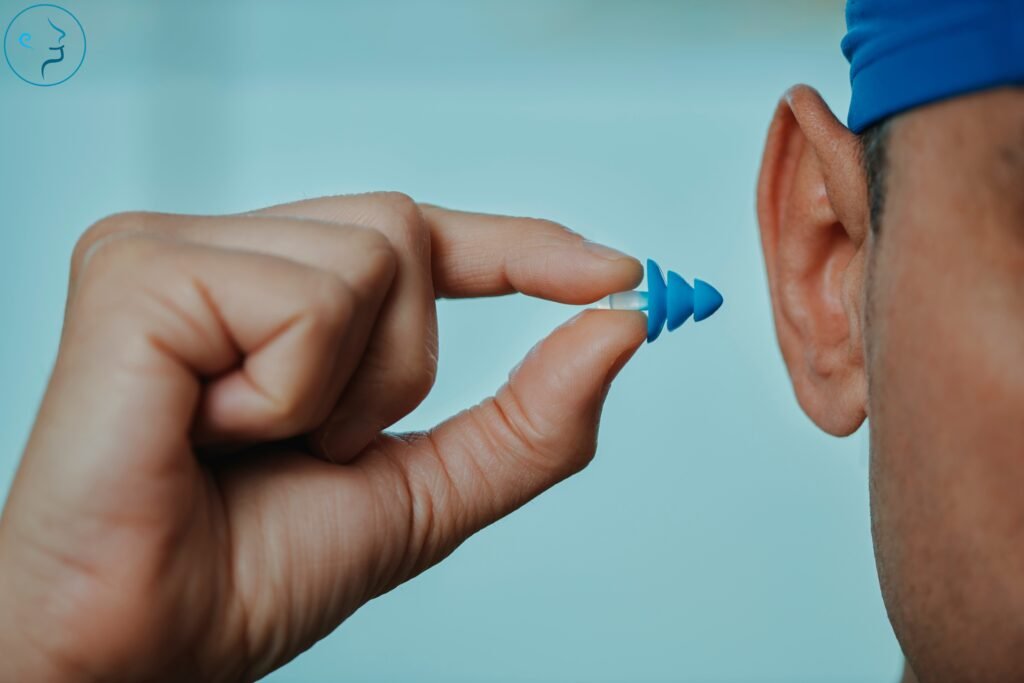
Don’t Let Swimmer’s Ear Ruin Your Fun: Causes, Symptoms, and Treatment Tips
If you love swimming or spending time in the water, you may have heard of swimmer’s ear — a common and often painful ear infection that affects both adults and children, especially during the summer months. At ENT Clinic of Excellence in Dubai, we frequently treat cases of swimmer’s ear and help patients get back to enjoying water activities safely and comfortably.
In this blog, we’ll explain what swimmer’s ear is, what causes it, how to treat it, and most importantly — how to prevent it.
What Is Swimmer’s Ear?
Swimmer’s ear (medical term: otitis externa) is an infection of the outer ear canal, the passage that connects the outer ear to the eardrum. It occurs when water gets trapped inside the canal, creating a moist environment where bacteria or fungi can grow.
While it’s called “swimmer’s ear” because it often affects swimmers, anyone can develop it — even from bathing, excessive sweating, or inserting objects like cotton swabs into the ear.
What Causes Swimmer’s Ear?
The most common causes include:
- Water exposure: Frequent swimming or showering traps moisture in the ear.
- Ear trauma: Scratching the ear or cleaning with cotton swabs can damage the skin inside the canal, letting bacteria in.
- Skin conditions or allergies: Eczema, psoriasis, or reactions to hair products can irritate the ear and increase infection risk.
Symptoms of Swimmer’s Ear
Symptoms can range from mild to severe and may develop suddenly or gradually:
- Itching inside the ear canal
- Ear pain, especially when touching or pulling the ear
- Drainage from the ear (clear, yellow, or pus-like)
- A sensation of fullness or pressure in the ear
- Muffled hearing or temporary hearing loss
In more serious cases, the infection may spread, causing fever, swollen lymph nodes, or severe pain.
How We Treat Swimmer’s Ear at Our ENT Clinic
If you’re diagnosed with swimmer’s ear, our ENT specialists will recommend the most effective course of treatment:
1. Prescription Ear Drops
We use medicated drops that combine antibiotics to fight infection and steroids to reduce inflammation and relieve pain. Most patients feel relief within a few days.
2. Ear Cleaning
If there’s a lot of wax or discharge, we may gently clean your ear canal to help the drops work better.
3. Pain Management
Over-the-counter pain relievers like ibuprofen or acetaminophen can reduce discomfort. A warm compress over the ear may also help.
4. Keeping the Ear Dry
Avoid swimming and protect your ear during showers using a waterproof earplug or a cotton ball with petroleum jelly. Keeping the ear dry is key to healing.
How to Prevent Swimmer’s Ear
Prevention is always better than treatment! Here’s how to keep your ears safe:
- Dry your ears thoroughly after swimming or bathing. Tilt your head to drain water and use a soft towel.
- Use swim earplugs or a swim cap to protect your ears in the pool.
- Avoid inserting anything into your ears — including cotton swabs and fingers.
- Use alcohol-based ear drops (e.g., a mix of rubbing alcohol and white vinegar) after swimming to dry out residual moisture.
When to See an ENT Specialist
If your symptoms don’t improve with home care — or if the pain, swelling, or discharge worsens — it’s time to visit an ENT clinic in Dubai. Untreated swimmer’s ear can lead to complications, such as deeper infections or hearing issues.
At ENT Clinic of Excellence, we offer advanced care for ear infections, including swimmer’s ear, with gentle cleaning techniques and personalized treatments. We also provide preventive guidance to help you enjoy the water worry-free.
Final Thoughts
Swimmer’s ear can be painful and disruptive, but with the right care and prevention, it’s manageable. Whether you’re dealing with an infection or looking to keep your ears healthy all summer long, our team at ENT Clinic of Excellence is here to help.
📞 Call us today at +971-502480249 or book your consultation through our website.
👂 Your ears deserve expert care — let us help you protect them!